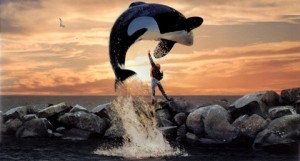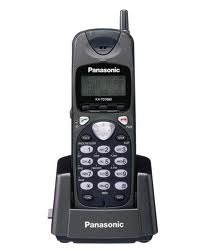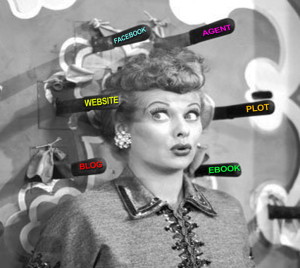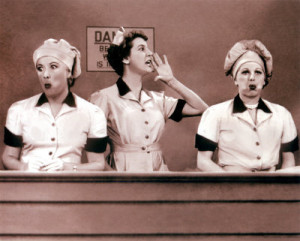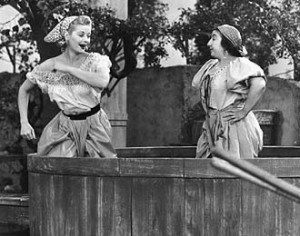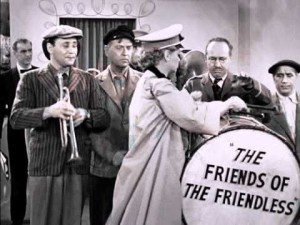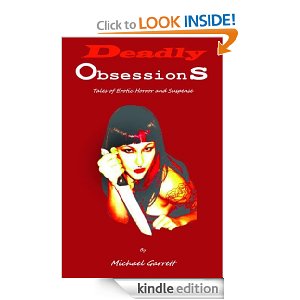One of our frequent commenters, tjc, offered up a good reader topic for our open forum: What series character do you love? What is it about this character that attracts you? What do you think the secret is of an enduring series character?
Have at it!
Monthly Archives: August 2012
How Much Are You Willing to Share About Your Stories? Author Confessions Time
I’ve been an avid reader since I was a kid in elementary school, but as I grew older, I wondered how authors concocted their stories and how much of their own experiences became a part of their fictional stories. Vivid scenes can put you into that moment with the characters. Exotic sights and smells can put you there, even if you’ve never been.
Now with each book that I write, I know the answer—at least for me. I feel like I’m treading on dangerous ground to reveal too much. I run the risk of pulling a reader out of my books because they may know where elements come from. But maybe telling some of my secrets might enrich a reader’s experience, like saying my stories are inspired by real headlines or true stories.
My first HarperCollins Sweet Justice series book, Evil Without A Face, had been inspired by a horrific near miss abduction by a young girl who had been virtually seduced online by a charming human trafficker. The girl had her computer only 6 months, a gift from her parents. The clever trafficker set up an elaborate scheme, involving innocent adults who he lied to, to trick this girl into leaving the US even when she didn’t have a passport. The FBI thwarted the abduction in Greece, minutes before the girl was to meet her kidnapper in a public market. The Echo of Violence (Sweet Justice #3) came from a real life terrorist plot to hold missionaries for ransom.
But those inspirations aren’t what I’m talking about. I’m referring to the small creative morsels that you pepper into your stories that are your secrets, no one else’s. So it’s confession time and I’ll start.
There’s a line in No One Heard Her Scream, my debut novel:
If she wanted to engage the only brain he had, all she had to do was unzip it and free willy.
I channeled that line through my character and didn’t even remember writing it, until one of my sisters asked about it. It came from one of my vacations when I visited Vancouver and took a day trip to see where they filmed “Free Willy.”
In my debut YA with Harlequin Teen, In the Arms of Stone Angels, I wrote about my 16-yr old Brenna Nash getting extra credit for dissecting a frog and earning extra credit for extracting the frog’s brain intact. Well, Brenna may have gotten the extra credit in the book, but I never did. I jabbed at that frog until it’s head was shredded. The brain popped out whole, so I asked for the credit. After my teacher saw the wreck I made, she only gave me a grimace and a heavy sigh. (There are quite a few more kid stories of mine in this book, but I’m stopping here.)
Sometimes I use real people that I know in my books as “fictional” characters. They know I’m doing it but they roll when they read what I wrote. I crack up too. The priest and Mrs Torres at the end of The Echo of Violence, for example. Yep, people I know. One of my favorite book reviewers for my YA novels entered a contest of mine and won being named a character in my upcoming release – Indigo Awakening. O’Dell shared some of his quirks in an email and after seeing that list, I thought he would make an odd villain. He can’t wait to read the book.
So now that I’ve given you a peek behind the curtain of Oz, is there anything you care to share about your own writing? If you’re a reader, have you ever heard or read stories about what elements have been connected to the real life of an author?
A Silent Society
Few people seem to make personal phone calls anymore just to say hello. In the old days, I would call my girlfriends and we’d spend hours chatting on the phone. But today, I’m lucky to get a terse email from my acquaintances asking if I want to meet for lunch.
What does this have to do with writing? Those of us who are full-time writers sit home alone all day. Our characters might keep us company, but it’s not the same as hearing a human voice. How long can you go without yearning to have a real conversation?
Despite having my retired husband at home, I still wonder why so few of my girlfriends pick up a phone anymore. Is it that they’re so involved with their busy lives? Is it because they’re afraid of interrupting my muse? Or do people nowadays consider it an inconvenience and a waste of time to talk on the phone? Our children are grown, so we don’t have to compare notes on child rearing. We’re not school kids, so we can’t moan about homework assignments or share high school angst. But in those days of starry-eyed youth, we would discuss the meaning of life, our knotty relationships with others, our fears and doubts. Do we writers just talk about them with our fingers on the keyboard now instead of our voices?
There’s great comfort in picking up the phone and hearing someone say, “I was just wondering how you’re doing.” Or, “I called to say hello.” What’s happened to those days? Is it my friends, or my attitude that’s off kilter? I still have intimate conversations with distant relatives on the phone. But that doesn’t apply to local friends. Is the telephone an outmoded device for social interaction? Are online social networks replacing real, live conversations? Texting and email are too impersonal and brief to count.
Or maybe it’s that cell phones are not as comfortable to talk on for any length of time as a landline. When speaking with this device close to my ear, I’m aware of the invisible rays boring into my head and the possible link to brain tumors. Or can it be a matter of economics, that people don’t want to use up their precious cell phone minutes on a frivolous call?
I still like to hear another human voice. Maybe that relegates me to the age of the dinosaurs.
What about you? Do you still have conversations with friends on the telephone?
What Lucy taught me about writing
Speed it up!
Reinvent yourself!
Make friends!
That all important first line
That all important first line of a novel…the one I agonize over as a writer. The one that, when I pick up a book, I read to assess (along with the rest of the first page) whether I’m going to buy it or not.
But how much does it really count?
In my current novel, I spent a long time deliberating over the first line – not because it was complicated or particularly awe-inspiring but because it needed to immediately draw the reader in and establish that things had already gone awry for one of the main protagonists. The first line is literally the hook to grab your reader and pull him/her in – but really, how much time should you spend on getting it right?
- Mood
- Theme
- Dissonance
- Threat
- Character
- World
It should neatly encapsulate the theme of the story to come and lead seamlessly into the first page that, as we have so often blogged about, is integral to creating a compelling (and ultimately saleable) novel.
And this the entry point can be unforgettable. I mean who can ignore the simplistic beauty of the opening to George Orwell’s 1984: It was a bright cold day in April, and the clocks were striking thirteen. Immediately we get a sense of mood, a sense of foreboding, and a vision of a world quite different to our own – and all in one line. Or take Ray Bradbury’s first line of Fahrenheit 451: It was a pleasure to burn. and my personal favorite (maybe because this is so often true…) I have never begun a novel with more misgiving (W. Somerset Maugham, The Razor’s Edge).
But sometimes I wonder, is it worth all the agony? Do you think the first line of a book is really that important? Apart from the classics, what memorable first lines have you read recently?
I Believe I Am Really a Writer
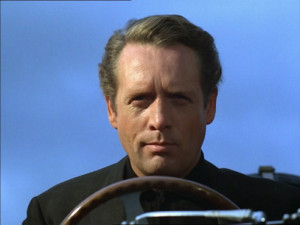
Lights, Camera…
Now it can be told.
Reader Friday: Stop It!
Who Created Writers? The Man With One Black Glove
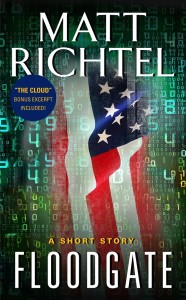 Today Pulitzer prize winning journalist Matt Richtel join us again for a fascinating real life story…read on to find out more…
Today Pulitzer prize winning journalist Matt Richtel join us again for a fascinating real life story…read on to find out more… Fried catfish and grits
By Joe Moore
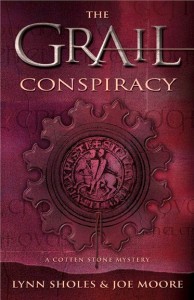 First, some shameless promotion. This Friday, August 24, Amazon will feature two of my thrillers (co-written with Lynn Sholes) on their Kindle Daily Deal. For one day only, you can download THE GRAIL CONSPIRACY or THE PHOENIX APOSTLES for
First, some shameless promotion. This Friday, August 24, Amazon will feature two of my thrillers (co-written with Lynn Sholes) on their Kindle Daily Deal. For one day only, you can download THE GRAIL CONSPIRACY or THE PHOENIX APOSTLES for 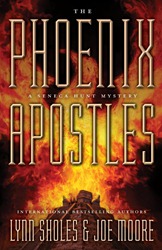 only $1.99 each. Both ebooks were featured on the Daily Deal in 2011 and made it to #1 on the bestselling Kindle book list. If you didn’t take advantage of the reduced price before, be sure to do so on Friday. Enjoy!
only $1.99 each. Both ebooks were featured on the Daily Deal in 2011 and made it to #1 on the bestselling Kindle book list. If you didn’t take advantage of the reduced price before, be sure to do so on Friday. Enjoy!
_________________
I recently read THE LOST ONES by Ace Atkins, a terrific story about a local county sheriff dealing with gun runners in North Mississippi. In addition to being an excellent storyteller, Atkins has an enviable talent for creating a strong sense of place—a vivid setting. By the time I finished the novel, I felt like I was so familiar with the back roads of Tibbehah County that I probably should be paying property taxes. And it gave me a big hankering for fried catfish, buttermilk cornbread and grits at the local diner.
So today I want to build on Joe Hartlaub’s Saturday post on Location and offer a few tips on creating a strong setting in your book.
Setting is integral to any story. As a writer, you’ve developed a unique plot and a strong set of characters. Now you must consider the setting. You can’t split the plot and characters from the setting and expect to produce a believable piece of prose in which your readers can relate. Why? Because like real life, your characters don’t live in a vacuum. Just like all of us, your characters are constantly affected by and reacting to their surroundings. For instance, how would your night scene be different if it took place in broad daylight? Rather than the scene being hot and dry, what if it was pouring rain? Would the weather and other natural elements change the dramatic impact of a scene? How would the setting make a scene spooky or funny or dangerous or calming?
Think of some classic scenes in your favorite books or movies and imagine them in different settings. Would they be as strong? Would Indiana Jones being chased down the streets of New York City by a big truck be as powerful as being chased by a giant rolling boulder through a cobwebbed ancient tunnel deep in the jungle? Would Clarice Starling’s interviews with Dr. Lecter have worked as well if it had taken place in a bright, modern chrome and shinny white prison rather than in the bowels of a dark, dungeon-like mental hospital for the criminally insane?
Beyond what your characters say and do, you must consider how their actions and reactions contrast or blend with their surroundings. And the best way to do that is to consider your setting as another character playing a part in the story. Setting is not just walls and doors and sky and grass, it’s how their surroundings interact with your characters, and their inner and outer actions and reactions to it.
Another element of setting is how characters live within it. By that I mean how they manage the common functions of life such as eating, sleeping, and other natural human processes. Most of us are familiar with the highly successful TV series 24. Even within the twenty-four-hour premise of each season’s show, people still had to take a deep breath once in a while. While 24 was a rare exception, most novels span more than one day. So during the course of the story unfolding, writers must manage their human characters with time to eat or sleep or at least rest for a moment. If the pace is so intense that the characters never get a break, the reader will become fatigued. Thrillers and mysteries are often described as rollercoaster rides. But even the longest coaster ride has peaks and valleys. Give your reader and your characters a break now and then by using the elements of the story’s setting.
And don’t forget about the passage of time as being an element of the setting. How does time passing speed up or slow down the plot or pacing? Is your story’s passage of time realistic? Or is it too compressed or expanded to be believable. Remember, unless you’re H.G. Wells and your book is called THE TIME MACHINE, be sure to manage your story’s clock so that it doesn’t get in the way of the story and give the reader a reason to pause and question it.
Setting is more than the location in which your story takes place. It’s all the external elements that affect your characters and their goals and objectives. If you treat your setting as an additional character, chances are your story will be fully developed.
Now let’s all go out for some fried chicken and collard greens.
How about you? Do you plan your settings ahead of time? Or let them develop as the story progresses. And readers, what was the most memorable and realistic setting in your favorite book?

